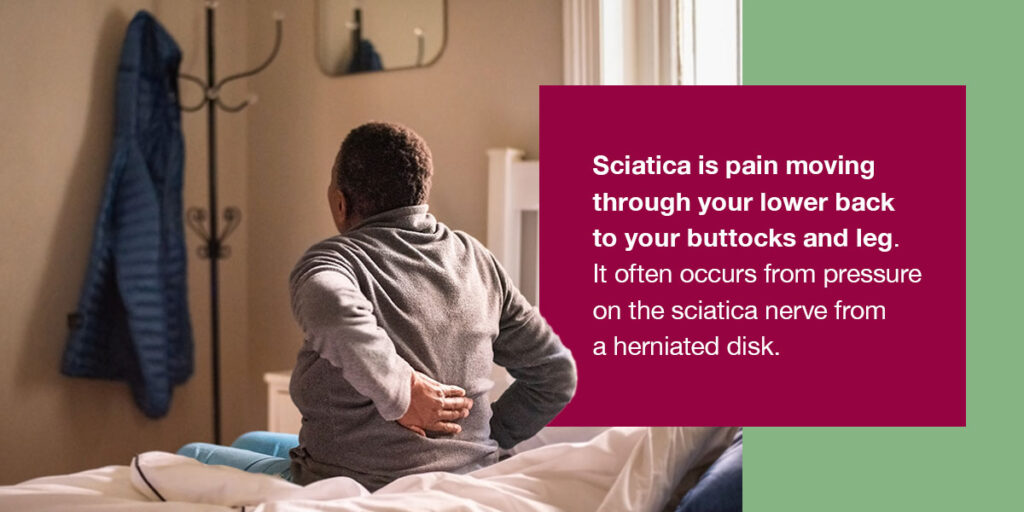Why Chiropractic Care Is Important During Colder Weather

When people think of winter, they often associate it with dark, cold days, sniffling noses and body aches. While dark and cold days are inevitable, fortunately, poor health doesn’t have to be. There are many ways to improve and sustain your well-being during the cold months. Chiropractic care is one of them.
Chiropractic care can do wonders for your physical and mental health throughout the year. But before you schedule your appointments, you need to understand the benefits and outcomes of chiropractic care and why it is vital in winter.
Table of Contents
How Does Cold Weather Affect Your Muscles?
Cold weather can cause muscle stiffness and pain. You might stay indoors more and become less active when it’s cold, and this inactivity can cause muscle stiffness and tension. Your digestion can become slower in colder conditions, and some people could gain weight. Extra weight strains your bones and muscles, causing pain and joint stiffness.
People with chronic pain might experience sore joints and muscles due to the cold weather. Cold conditions can also impact your blood circulation and cause dehydration and fatigue. Dehydration can lead to muscle stiffness and pain, primarily during physical activity.
Benefits of Chiropractic Care in Winter
Winter chiropractic care can help alleviate muscle pain, aid in better circulation and digestion and improve your mood.
Pain Relief
Chiropractic care can alleviate muscle and joint stiffness. In winter, you might have more pain due to physical activity or sitting indoors all day. You can also experience more intense discomfort if you have a chronic condition like back pain.
Chiropractic adjustments can reduce muscle and joint inflammation by realigning your spine and reducing tension in the surrounding muscles. Sitting indoors all day with minimal physical activity can cause spinal misalignment and poor posture. Chiropractors can realign and alleviate tension in your spine and correct your posture.
You might slip or fall on a frozen or wet surface in winter, causing back or other bodily injury and pain. Chiropractic care offers non-invasive and gentle solutions to alleviate muscle pain from injuries.
Improves Fluid Circulation
In cold weather, your body chills and blood vessels contract, reducing circulation. Lower or poor circulation can affect your immune system, often leading to illness. You might also take longer to recover from sickness like the flu.
Chiropractors can perform a spinal adjustment, relieving spinal tension and increasing blood circulation. Better circulation can reduce inflammation from colds and allergies and promote quicker recovery and healing from illness.
Promotes Digestion and Absorption
By improving circulation, chiropractic care and proper nutritional support can enhance digestion system function. Improving digestion helps your body absorb vital nutrients and remove waste that it does not need. Improving your body’s digestive process can help prevent symptoms and reduce the chances of gaining weight.
Injury Prevention and Relief
When you work out in winter, you may be more prone to injury. Your muscles might be less prepared to do physical activity, and warming them up can take longer. Injuries in areas like your back, neck and legs can cause intense discomfort, especially in the cold.
Getting chiropractic care in the winter can improve joint mobility and flexibility. It can also reduce muscle tension and strengthen and prepare your body for physical activity. If you sustain an injury, various chiropractic care solutions can help alleviate the pain and inflammation, improve coordination and aid in faster recovery so you can stay active and fit throughout the season.
Promotes Movement
It’s normal to be less motivated to go to the gym, take a walk or do any physical activity. Additionally, wet conditions can prevent you from going from going outside. However, movement like walking can be vital in winter, especially in older adults and pregnant people. Limited mobility and exercise can affect your blood flow. Chiropractic care can aid circulation, improve mobility and flexibility and stimulate muscle and body movement.
Improves Well-Being
Many people may suffer from depression and feelings of sadness during winter. Dark and cold days indoors can make you feel isolated, impacting your mood. Physical pain from muscle soreness and injuries can intensify your sadness, anxiety and low spirits.
“The chiropractic profession has a long history of acknowledging the relationship between nervous system function and mental health. This paper reviews the history of chiropractic involvement in mental health issues, chiropractic institutions specializing in the care of mental health problems, and the putative neurobiological mechanisms associated with vertebral subluxation and dysregulation of the autonomic nervous system.” Journal of Philosophy, Principles & Practice of Chiropractic ~ August 30, 2018 ~ Pages 8-14
Your chiropractor can perform or prescribe exercises that promote calmness and relaxation. These solutions can not only reduce your pain but also improve your mental health and well-being.
Sciatica and Cold Weather

Sciatica is pain moving through your lower back to your buttocks and leg. It often occurs from pressure on the sciatica nerve from a herniated disk. It can cause pain, inflammation, numbness and burning or tingling sensations in your leg or other affected area. For example, someone with sciatica might stand up and feel an instant and sharp pain in their lower back. They might also experience numbness and severe tingling or pins and needles in their leg when sitting or standing.
Sciatica Symptoms and Cold Weather
Cold weather and sciatica symptoms go hand in hand. The cold can aggravate or intensify sciatica symptoms like:
- Body pain and numbness
- Muscle and joint stiffness
- Sharp pain when sitting
- Pins and needles or tingling
- Tingling or burning leg pain
- Pain from standing up
- Muscle weakness
- Difficulty moving toes, feet or legs
Chiropractic Care for Sciatica in Winter
Chiropractors can offer numerous solutions for alleviating sciatica in winter. Some common solutions can include:
- Spinal correction: A chiropractor can adjust your spine, specifically the subluxation or misaligned vertevra that is applying pressure to the disc and nerve. A gentle correction addresses the cause, alleviating the pressure on the sciatica nerve and improves spinal mobility and alignment.
Contact Upper Cervical Chiropractic of Monmouth, LLC for Chiropractic Care
Winter can be harsh on your physical and mental health. That’s why prioritizing your wellness is more important than ever during the colder seasons. Whether preparing and caring for your muscles, immune system or mental health, focusing on your well-being can make your winter more comfortable and enjoyable.
At Upper Cervical Chiropractic of Monmouth, LLC, we understand how debilitating winter can be on your body and mind. We offer specialized chiropractic care to alleviate musculoskeletal pain, promote healthy circulation and immune system and improve your well-being. Our experienced doctors are highly qualified and focused on treating the root cause and providing permanent solutions for your needs.
Reach out today to learn more about or services or schedule a consultation.

Dr. Arbeitman
Dr. Arbeitman, a trailblazing figure in Upper Cervical Chiropractic, established Upper Cervical Chiropractic of Monmouth, LLC in 2005. Dedicated to promoting holistic wellness, he has empowered countless individuals to embrace Upper Cervical Chiropractic care as an integral part of their health journey. Graduating Magna Cum Laude from Logan College of Chiropractic and holding a Bachelor of Science in Kinesiological Sciences from the University of Maryland at College Park, Dr. Arbeitman is a licensed practitioner in New Jersey who has met the rigorous standards set by the National Board of Chiropractic Examiners. Beyond his extensive educational achievements, he has earned multiple scholarships and accolades for his academic prowess and exemplary clinical performance. Dr. Arbeitman's holistic approach encompasses spinal and nervous system care, lifestyle guidance, fitness evaluation, and nutritional expertise, all founded on the belief that the doctor-patient relationship is paramount to the healing process.





